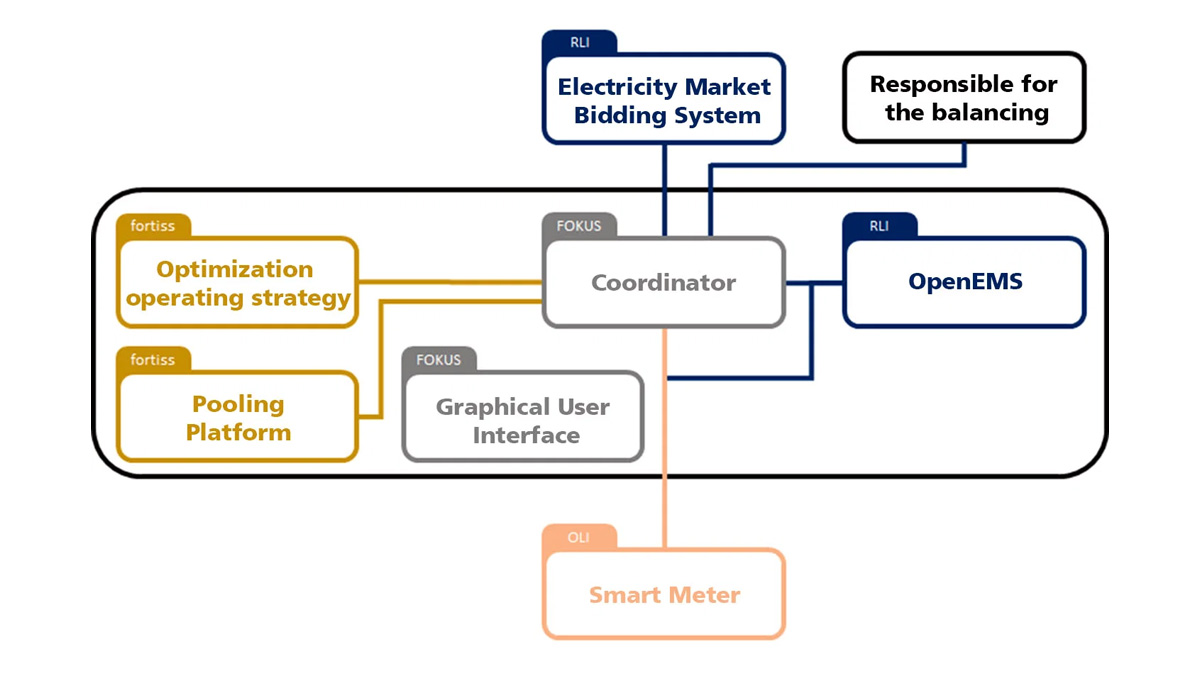
With the increasing use of renewable energy, the power grid faces the challenge of handling the associated volatility in power generation. Electricity generation fluctuates depending on the weather and is increasingly decentralized, which means that the energy supply varies significantly from region to region. The ever-increasing interlinking of devices and systems via the Internet allows them to be operated and controlled flexibly and remotely. In this way, the supply and demand of electrical energy in the power grid can be influenced and coordinated. This flexibility offers excellent potential for stabilizing power grids and making efficient use of available energy.
Therefore, the BEST project will develop, implement, and study a power market bidding system (SMBS) that will enable power trading between facilities on the power grid. Participating plants - regardless of type (consumer, generator, storage) and power class (household or industrial) - are connected to and controlled by the SMBS via a central management system. Interfaces to smart meter gateways and an energy management system will be used to control downstream equipment and check and automatically bill the actual electricity flow. The electricity market bidding system will be implemented on the basis of open blockchain technology. This creates advantages in terms of security and transparency and the possibility of local interconnectivity without third-party providers. In a field test, the SMBS, the central management system, and the pooling platform will be tested in a real laboratory and industrial plants.
